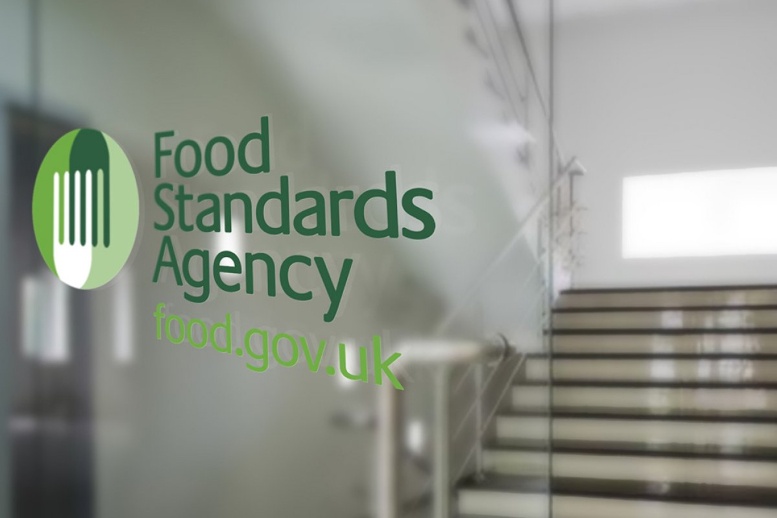UK Regulator to Reform Approval Process for Cultivated Meat & Precision Fermentation
5 Mins Read
The UK’s Food Standards Agency has announced it will implement changes to speed up and ‘modernise’ the authorisation process for novel foods. But experts say more needs to be done.
Next year, the UK’s food safety regulator will introduce changes to its regulatory framework for market authorisations in an attempt at “modernising” the process.
In its latest board meeting yesterday, the Food Standards Agency (FSA) ratified changes to the approval process for foods like cultivated meat and precision-fermented products. The move will see the creation of a new public register that replaces the existing system of requiring a statutory instrument, which adds up to six months to a process that already takes over two-and-a-half years.
Following a consultation with industry stakeholders and approval by the new Labour government, the regulator announced it hopes to roll out the reforms in early 2025.
The overhaul could benefit a range of food industry players and consumers while continuing to uphold the FSA’s rigorous safety standards. It also marks a departure from the EU-like regulations the agency had retained post-Brexit, which it said haven’t been designed to operate in a UK context.
“We hope British alternative protein companies will be reassured that the FSA is taking sensible steps to modernise its process while continuing to enforce a gold-standard regulatory system that can give consumers confidence in new products,” Linus Pardoe, UK policy manager at GFI Europe, told Green Queen.
But GFI Europe warned that the UK needs even more ambitious methods to keep up with the global pace, urging the government to draw on inspiration from other progressive regulatory frameworks internationally.
FSA proposals met with broad support

The changes – which affect ‘regulated products’ like feed additives, food flavourings, and alternative proteins – were first proposed by the FSA in March.
The food regulator sought to remove renewal requirements for feed additives, and food or feed containing or produced from GMOs. Currently, products that have been approved need to reapply for clearance every 10 years, which crowds up the FSA’s docket. Around 22% of its current caseload are renewal applications, and it expects a further 300 in 2025 and 2026 as approvals expire.
“Removing the requirements for renewals will promote a more proactive and dynamic approach to maintaining food and feed safety,” the FSA commented, noting that it would mean applications in the system “decrease considerably, releasing resources to focus on new marketing authorisations, including innovative products”.
The second proposal revolved around the new public register. At the moment, the parliament needs to pass statutory instruments before a novel food can go on the market, which is a time-consuming process. The FSA suggested that the removal of this step would speed up approvals by three months, allowing products to be commercialised following a ministerial decision.
Both proposals received broad support from stakeholders, which included cultivated meat startups like Mosa Meat and Meatable – 71% agreed with the plan to scrap renewal requirements, while a similar 70% were in favour of removing the statutory instrument process.
“New UK government ministers have confirmed they are content to proceed with our two initial market authorisation reform proposals to remove renewal requirements for authorised regulated products and allow authorisations to come into effect following ministerial decisions,” the FSA said. “We are now prioritising delivery of this work.”
While the FSA will continue to conduct rigorous assessments of food safety with ministers the final decision-makers, it argued that the changes will release resources to focus on new authorisations: “Consumers will benefit from new, safe products reaching the market more quickly, including novel foods and products which have sustainability and environmental benefits.”
UK government must implement ‘wider-ranging measures’

The move comes months after London-based Meatly became the first European cultivated meat startup to receive regulatory clearance, with the Department for Environment, Food and Rural Affairs giving the go-ahead to its cultivated chicken for cats and dogs (Meatly was in consultation with the FSA throughout the process). Aleph Farms and Vital Meat have also filed applications for cultivated meat in the UK, while Mosa Meat has announced plans to do the same.
The regulator has been pushing to move past the inherited EU legislation, which it said was transferred to the UK with minor amendments for operability. It called the EU requirements “prescriptive and, in some cases, not proportionate to the risk”.
Outlining how the caseload is expected to rise from 450 in March 2024 to 570 by March 2026.” Without urgent action, we will be unable to keep pace with this growing caseload. This will affect consumers’ choice and access to new and potentially beneficial products,” it said.
The regulator has also been hoping to win government funding that it would use to create a regulatory ‘sandbox’ for the safety testing of cultivated meat. Alternative protein think tank the Good Food Institute (GFI) Europe – which has welcomed the FSA’s changes – is calling on ministers to approve this bid in next month’s budget. This would ensure “the body can accelerate its understanding of the food safety aspects of cultivated meat.”
“But to send a clear signal to startups, the FSA and UK government must quickly follow these initial steps with more wide-ranging measures to modernise our regulatory system, ensuring it keeps up with the rapid pace of innovation,” said Pardoe.
“The government should implement an ambitious range of reforms to modernise the UK’s novel foods regulatory framework, such as producing clear guidance for companies planning on submitting applications for cultivated meat and precision fermentation products and formalising a process for startups to enter pre-submission consultations,” he explained.
“They should also share information about risk assessments with trusted international partners and should follow the Dutch government by designing a system for pre-market tastings, enabling companies to work closely with consumers to develop products.”



